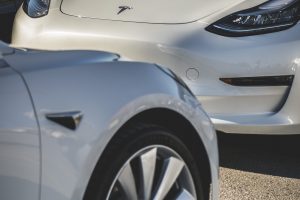It appears that Tesla China will be unleashing the might of Gigafactory Shanghai, its largest and most efficient vehicle production plant by volume, for the next two months. Giga Shanghai is reportedly looking to raise its weekly output to nearly 20,000 vehicles for February and March, allowing Tesla China to address the rising demand for its cars.
Gigafactory Shanghai’s output was throttled in December thanks in part to maintenance efforts that lowered vehicle production at the end of the month. The facility’s output was not maximized in January either due to the Lunar New Year celebration in China, which covered the final days of the month.
Citing a planning memo outlining vehicle production plans for the facility and a source reportedly familiar with the matter, Reuters noted that Tesla China would be looking to produce an average of almost 20,000 vehicles per week at its Shanghai factory over the next two months. This should bring the facility to its output level in September when it produced 82,088 Model 3 sedans and Model Y crossovers.
Tesla China is estimated to have seen a 36% increase in average daily retail sales in the first 29 days of January, compared to the same period from the previous year, as per data from China Merchants Bank International. This effectively outpaced major competitor BYD, which was able to beat Tesla China’s volumes in the past months.
Tesla China has not issued a comment about the matter as of writing. Teslarati has requested a comment from Tesla China and will be updating this article if or when we get a response.
Tesla Gigafactory Shanghai stands as the electric vehicle maker’s primary vehicle export hub, producing Model 3 sedans and Model Y crossovers for both the local Chinese and international markets. The facility would likely play a key role in the company’s operations this year, especially as it aims to grow its worldwide output to 1.8 million vehicles this 2023.
During the Q4 and FY 2022 earnings call, CEO Elon Musk noted that Tesla’s 1.8-million target is actually conservative, as deliveries this year could reach 2 million cars.
“Our internal production potential is actually closer to 2 million vehicles, but we were saying 1.8 million because, I don’t know, there just always seems to be some freaking force majeure thing that happens somewhere on earth. If it’s a smooth year, actually, without some big supply chain interruption or massive problem, we actually have the potential to do 2 million cars this year,” Musk said.





